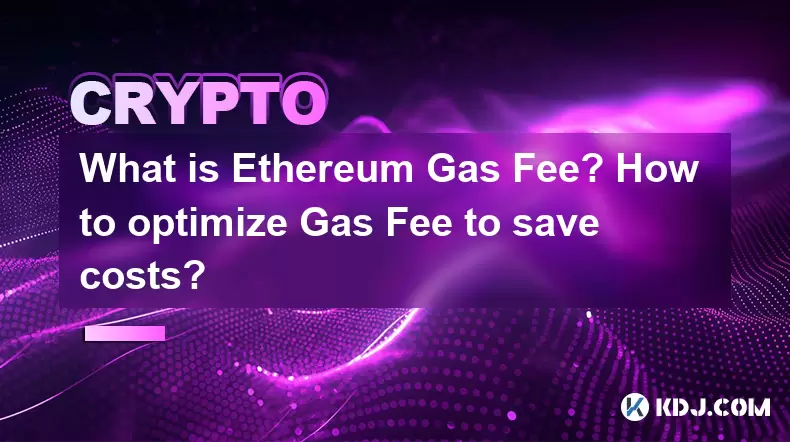-
 Bitcoin
Bitcoin $118300
1.01% -
 Ethereum
Ethereum $4215
0.69% -
 XRP
XRP $3.198
-3.83% -
 Tether USDt
Tether USDt $1.000
-0.01% -
 BNB
BNB $803.4
-0.53% -
 Solana
Solana $180.3
-0.67% -
 USDC
USDC $0.9998
-0.01% -
 Dogecoin
Dogecoin $0.2334
-1.49% -
 TRON
TRON $0.3394
0.86% -
 Cardano
Cardano $0.7980
-1.45% -
 Chainlink
Chainlink $22.19
6.65% -
 Hyperliquid
Hyperliquid $43.41
0.13% -
 Stellar
Stellar $0.4407
-3.13% -
 Sui
Sui $3.843
-2.24% -
 Bitcoin Cash
Bitcoin Cash $564.7
-3.74% -
 Hedera
Hedera $0.2588
-3.41% -
 Ethena USDe
Ethena USDe $1.001
0.00% -
 Avalanche
Avalanche $23.64
-3.37% -
 Litecoin
Litecoin $120.0
-4.01% -
 Toncoin
Toncoin $3.342
-1.11% -
 UNUS SED LEO
UNUS SED LEO $9.038
0.60% -
 Shiba Inu
Shiba Inu $0.00001347
-0.81% -
 Uniswap
Uniswap $10.69
-4.58% -
 Polkadot
Polkadot $4.034
-1.30% -
 Dai
Dai $1.000
0.01% -
 Bitget Token
Bitget Token $4.472
-1.52% -
 Cronos
Cronos $0.1571
-3.04% -
 Pepe
Pepe $0.00001207
-2.21% -
 Monero
Monero $273.8
-3.19% -
 Ethena
Ethena $0.7520
2.75%
What is Ethereum Gas Fee? How to optimize Gas Fee to save costs?
Understanding and optimizing Ethereum gas fees can significantly enhance transaction cost-effectiveness on the blockchain.
May 08, 2025 at 03:43 am

Ethereum gas fees are a crucial aspect of interacting with the Ethereum blockchain. Understanding and optimizing these fees can significantly impact the cost-effectiveness of transactions and smart contract interactions. In this article, we will delve into what Ethereum gas fees are, how they are calculated, and provide detailed strategies for optimizing them to save costs.
What is Ethereum Gas Fee?
Ethereum gas fees are payments made by users to compensate for the computational power required to process and validate transactions or execute smart contracts on the Ethereum network. These fees are essential for the network's operation, as they incentivize miners to include transactions in blocks.
The gas fee is calculated by multiplying the gas limit by the gas price. The gas limit represents the maximum amount of gas a user is willing to use for a transaction, while the gas price is the amount of Ether (ETH) a user is willing to pay per unit of gas. The total fee, therefore, is determined by the formula:
[ \text{Total Fee} = \text{Gas Limit} \times \text{Gas Price} ]
Factors Influencing Gas Fees
Several factors influence the gas fees on the Ethereum network:
- Network Congestion: During periods of high demand, the gas prices tend to rise as users compete to have their transactions processed quickly.
- Complexity of Transaction: More complex transactions or smart contract executions require more gas, leading to higher fees.
- Gas Price Set by User: Users can set their own gas price, which affects how quickly their transaction is processed and the cost they incur.
How to Optimize Gas Fees
Optimizing gas fees involves strategies to minimize costs while ensuring transactions are processed in a timely manner. Here are some effective ways to achieve this:
1. Timing Your Transactions
- Monitor Network Congestion: Use tools like Etherscan or Eth Gas Station to check the current gas prices and network congestion. Transacting during off-peak times can result in lower fees.
- Avoid Peak Times: Typically, gas prices are higher during peak usage times, such as weekends or during major DeFi events. Planning transactions during quieter periods can save costs.
2. Adjusting Gas Price and Limit
- Set Optimal Gas Price: Use gas price estimators to find the lowest price that still allows your transaction to be processed within a reasonable timeframe. Tools like Gas Now can provide real-time suggestions.
- Adjust Gas Limit: For simple transactions, setting a lower gas limit can reduce costs. However, ensure the limit is sufficient to cover the transaction's needs to avoid failure.
3. Using Gas Optimization Tools
- Layer 2 Solutions: Utilize layer 2 scaling solutions like Optimism or Arbitrum to process transactions off the main Ethereum chain, which can significantly reduce gas fees.
- Gas Optimization Plugins: Some wallets and platforms offer plugins or features that automatically optimize gas settings for you. For example, MetaMask has a feature to suggest optimal gas prices.
4. Batch Transactions
- Combine Multiple Transactions: If you need to perform multiple transactions, consider batching them into a single transaction. This can reduce the overall gas cost compared to executing each transaction individually.
- Smart Contract Optimization: For developers, optimizing smart contracts to reduce the number of operations required can lower gas consumption.
5. Choosing the Right Wallet
- Use Gas-Efficient Wallets: Some wallets are designed to be more gas-efficient. For instance, Argent offers features that help users save on gas fees by optimizing transaction settings automatically.
Detailed Steps to Optimize Gas Fees
To provide a practical guide, here are detailed steps to optimize gas fees using a popular wallet like MetaMask:
- Open MetaMask: Launch the MetaMask extension in your browser or the mobile app.
- Initiate a Transaction: Click on "Send" or "Interact with Contract" to start a transaction.
- Set Gas Settings: Click on "Edit" next to the gas fee estimate to manually adjust the settings.
- Use Gas Price Estimator: Navigate to a gas price estimator tool like Gas Now to get the current recommended gas prices.
- Enter Gas Price: Input the suggested gas price from the estimator into MetaMask.
- Adjust Gas Limit: If you're familiar with the transaction's complexity, adjust the gas limit accordingly. For simple transactions, you might lower it slightly.
- Confirm Transaction: Review the settings and confirm the transaction. Monitor the transaction status on a block explorer like Etherscan to ensure it processes successfully.
Common Misconceptions About Gas Fees
It's important to address some common misconceptions about gas fees:
- Higher Gas Fees Mean Faster Transactions: While higher gas fees can increase the likelihood of faster processing, it's not a guarantee. Network congestion and miner behavior also play significant roles.
- Gas Fees Are Fixed: Gas fees are dynamic and can change based on network conditions. Users have the flexibility to adjust their gas settings to balance speed and cost.
- All Transactions Have the Same Gas Cost: The gas cost varies depending on the transaction's complexity and the current network state.
Frequently Asked Questions
Q: Can I get a refund if my transaction fails due to insufficient gas?
A: If a transaction fails because the gas limit was too low, the used gas is not refunded. However, any unused gas from the set gas limit is returned to the sender.
Q: How does Ethereum's upcoming upgrades affect gas fees?
A: While we avoid discussing future prospects, it's worth noting that Ethereum's ongoing upgrades aim to improve scalability and efficiency, which historically have had an impact on gas fees.
Q: Are there any risks associated with setting very low gas prices?
A: Yes, setting very low gas prices can lead to transactions being stuck in the mempool for an extended period or not being processed at all if miners do not find it profitable to include them in a block.
Q: Can gas fees be paid in tokens other than ETH?
A: Currently, gas fees on the Ethereum network must be paid in ETH. However, some layer 2 solutions and other blockchain networks might allow for gas payments in different tokens.
Disclaimer:info@kdj.com
The information provided is not trading advice. kdj.com does not assume any responsibility for any investments made based on the information provided in this article. Cryptocurrencies are highly volatile and it is highly recommended that you invest with caution after thorough research!
If you believe that the content used on this website infringes your copyright, please contact us immediately (info@kdj.com) and we will delete it promptly.
- Cold Wallet's Hot Streak: Acquisition, User Growth, and How it Stacks Up Against Ethereum & XRP
- 2025-08-10 20:30:16
- Bitcoin, Cloud Mining, and Crypto Earnings: What's Hot in 2025?
- 2025-08-10 20:50:12
- Presale Cryptos Face-Off: BlockDAG, TOKEN6900, and the Hunt for the Next Big Thing
- 2025-08-10 20:55:12
- DeFi, Meme Coins, and 2025: Navigating the Crypto Landscape
- 2025-08-10 20:30:16
- Cardano, Returns, and Trade Deals: A New Yorker's Take
- 2025-08-10 18:50:16
- Dogwifhat's Comeback: Solana Meme Coin Mania and Beyond!
- 2025-08-10 18:30:15
Related knowledge

How to purchase Aragon (ANT)?
Aug 09,2025 at 11:56pm
Understanding Aragon (ANT) and Its PurposeAragon (ANT) is a decentralized governance token that powers the Aragon Network, a platform built on the Eth...

What is the most secure way to buy Ocean Protocol (OCEAN)?
Aug 10,2025 at 01:01pm
Understanding Ocean Protocol (OCEAN) and Its EcosystemOcean Protocol (OCEAN) is a decentralized data exchange platform built on blockchain technology,...

Where can I buy UMA (UMA)?
Aug 07,2025 at 06:42pm
Understanding UMA and Its Role in Decentralized FinanceUMA (Universal Market Access) is an Ethereum-based decentralized finance (DeFi) protocol design...

How to buy Storj (STORJ) tokens?
Aug 09,2025 at 07:28am
Understanding Storj (STORJ) and Its Role in Decentralized StorageStorj is a decentralized cloud storage platform that leverages blockchain technology ...

What is the best app to buy Nano (NANO)?
Aug 09,2025 at 03:35am
Understanding Nano (NANO) and Its Unique FeaturesNano is a feeless, instant cryptocurrency designed for fast peer-to-peer transactions. Unlike many ot...

Where can I purchase Siacoin (SC)?
Aug 08,2025 at 11:14am
Understanding Siacoin (SC) and Its Role in the Sia NetworkSiacoin (SC) is the native cryptocurrency of the Sia decentralized cloud storage platform, a...

How to purchase Aragon (ANT)?
Aug 09,2025 at 11:56pm
Understanding Aragon (ANT) and Its PurposeAragon (ANT) is a decentralized governance token that powers the Aragon Network, a platform built on the Eth...

What is the most secure way to buy Ocean Protocol (OCEAN)?
Aug 10,2025 at 01:01pm
Understanding Ocean Protocol (OCEAN) and Its EcosystemOcean Protocol (OCEAN) is a decentralized data exchange platform built on blockchain technology,...

Where can I buy UMA (UMA)?
Aug 07,2025 at 06:42pm
Understanding UMA and Its Role in Decentralized FinanceUMA (Universal Market Access) is an Ethereum-based decentralized finance (DeFi) protocol design...

How to buy Storj (STORJ) tokens?
Aug 09,2025 at 07:28am
Understanding Storj (STORJ) and Its Role in Decentralized StorageStorj is a decentralized cloud storage platform that leverages blockchain technology ...

What is the best app to buy Nano (NANO)?
Aug 09,2025 at 03:35am
Understanding Nano (NANO) and Its Unique FeaturesNano is a feeless, instant cryptocurrency designed for fast peer-to-peer transactions. Unlike many ot...

Where can I purchase Siacoin (SC)?
Aug 08,2025 at 11:14am
Understanding Siacoin (SC) and Its Role in the Sia NetworkSiacoin (SC) is the native cryptocurrency of the Sia decentralized cloud storage platform, a...
See all articles

























































































